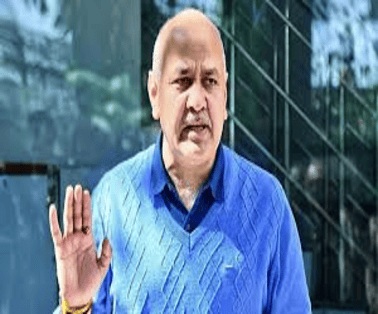The Opposition’s demand for a ‘Short Duration Discussion’ under Rule 267 to take up the Manipur issue was declined in Rajya Sabha.
What is Rule 267 in Rajya Sabha?
- According to the Rules of Procedure and Conduct of Business in the Council of States (Rajya Sabha), under Rule 267, “Any member, may, with the consent of the Chairman, move that any rule may be suspended in its application to a motion related to the business listed before the Council of that day and if the motion is carried, the rule in question shall be suspended for the time being.”
- Simply put, under this rule, Rajya Sabha MPs can give a written notice to suspend all listed business and discuss an issue of importance the country is facing.
- If an issue is admitted under Rule 267, it signifies it’s the most important national issue of the day.
- Also, the government will have to respond to the matter by replying during the discussions under Rule 267.
- No other form of discussion entails suspension of other business.
The Controversy Over Rule 267 in Recent Sessions
- Recently, the Opposition’s demand for a discussion on Manipur under Rule 267 was declined by Rajya Sabha Chairman Jagdeep Dhankhar. Despite nationwide outrage over the viral video of two women being paraded naked in Manipur, the Chairman opted not to invoke Rule 267
- The Opposition’s demand had come under Rule 267, which has emerged as a thorny issue in Parliament sessions recently.
- No notice given by the Opposition under Rule 267 has been accepted in recent times.
- In the winter session of Parliament, Rajya Sabha Chairman Jagdeep Dhankhar had said he would invoke Rule 267 “on merit”.
- While the Opposition wanted to discuss Manipur under this rule, Dhankhar said the government was “keen and agreeable” for discussion under Rule 176 for “Short Duration Discussion”.
Rule 267 vs. Rule 176: Key Differences
Both Rule 267 and Rule 176 allow discussions on matters of national importance, but they differ in their procedures:
Rule 267: Suspension of All Business
- Purpose: Allows the suspension of all parliamentary business to discuss an issue of national significance.
- Timeframe: Discussions can take place immediately, with no other business scheduled for the day.
- Formal Motion: The motion requires approval from the Chairman, and the government must respond during the discussion.
- Key Difference: No voting or formal motion is required under Rule 267. If the issue is admitted, it’s treated as the most important issue of the day.
Rule 176: Short Duration Discussion
- Purpose: Allows discussions on urgent public matters but doesn’t suspend other business.
- Timeframe: The discussion is limited to two and a half hours, and it can be scheduled for the next day or within a few hours.
- Formal Motion: No formal motion or voting occurs during a short-duration discussion.
- Key Difference: Unlike Rule 267, Rule 176 allows for discussions without suspending other parliamentary work.
Why is Rule 267 Important for Parliamentary Discussions?
- Rule 267 plays a crucial role in ensuring that the most pressing issues facing the nation are given priority in Parliament.
- By allowing for immediate discussions on national crises, it ensures that important matters are debated without waiting for scheduled business.
- However, the controversial use of Rule 267, particularly in recent sessions, has led to questions about parliamentary transparency and the fairness of discussions.
To Download Monthly Current Affairs PDF Click here
Get Inspiration from CLAT 2025 Topper
Click here to get a free demo
Everything About CLAT 2025
Rule 267 Frequently Asked Questions
What is Rule 267 in the Rajya Sabha?
Rule 267 allows Rajya Sabha members to request the suspension of all scheduled business to discuss urgent national issues. The Chairman must approve the motion.
What is Rule 267 in the Rajya Sabha?
Rule 267 allows Rajya Sabha members to request the suspension of all scheduled business to discuss urgent national issues. The Chairman must approve the motion.
Why has Rule 267 been controversial?
The controversy arises from the frequent rejection of notices under Rule 267 by the Chairman, particularly after significant national issues, leading to frustrations among the Opposition.
What is the significance of Rule 267?
Rule 267 allows urgent matters of national importance to be discussed immediately, giving them top priority in Parliament over scheduled business.



